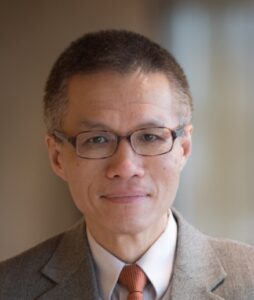SGO Coding Corner: Use of modifier when taking the patient back to the operating room for a reoperation | Dennis Yi-Shin Kuo, MD, MMM

Dennis Kuo, MD
Modifiers 58, 78, and 79 are used when a surgeon returns to the OR within the global period, which can be 0, 10, or 90 days. Furthermore, the surgeon who performed the second procedure could be of the same specialty, same billing group, but does not have to be the same person. When the surgery was performed by a provider of a different specialty, the global period and these modifiers do not apply.
Modifier 58 is used when a planned or related service/procedure is done by the same physician or same group of physicians during the postoperative period. Significance of this modifier is that:
1. The procedure was planned at the time of the original procedure
2. The procedure was more extensive than the original procedures, or
3. The procedure was provided as therapy following a diagnostic surgical procedure
Of note, the global period starts over from the time of the second procedure.
A 40-year-old patient had a cone biopsy for CIN III. Pathology came back as invasive squamous cell carcinoma with 6mm invasion. Patient had a radical hysterectomy 50 days after her cone biopsy. In this case, the global period restarted at day 50. A modifier 58 is used for the radical hysterectomy code, 58210, if both procedures were done by the same surgeon or same group of surgeons. Modifier 58 does not apply if a general gynecologist performed the conization.
A 62-year-old patient had a robotic assisted TLH, BSO sentinel node biopsy for a serous carcinoma. Final pathology was a Stage IIIC1 serous carcinoma. On post-operative day 20, the same surgeon placed a port-a-cath in the patient for venous access to chemotherapy infusion. The second procedure was not more extensive than the original procedure with a global period of 10 days only. Therefore modifier 58 was not necessary in this case.
Modifier 78 usually reports an unplanned return to the operating room by the same physician or other qualified healthcare professional after the initial procedure for a related procedure during the postoperative period. It is an unexpected outcome of the previous procedure, such as hemorrhage, bowel perforation, or urinary leakage.
It is important to note that:
1. The unanticipated surgery does not restart a new global period.
2. Modifier 78 is a payment modifier and the payment is usually 70-80% of the physician fee schedule for the surgical procedure.
3. The unplanned procedure is not part of the original surgery, but is a separate operating session.
4. The diagnosis code is usually different.
5. Modifier 78 should not be used along with modifier 58 or 79.
6. If surgery was done in a non-teaching hospital, the assistant surgeon modifier such as 80, 81, 82 and AS should be listed first when they are used in conjunction with modifier 78.
A 62-year-old patient was diagnosed with endometrioid carcinoma grade 2. She had a robotic assisted TLSBSO, bilateral sentinel node biopsies, extensive lysis of adhesions due to her previous mesh placement. On post-operative day 7, the patient went back to the operating room for a bowel perforation requiring a repair and a diverting ostomy by the same surgeon. The code for the procedure would be 44310 with a modifier 78. The start of the global period did not change and remained the day of the laparoscopic procedure.
Modifier 79 is added to the surgery code when the surgeon wants to report an unrelated procedure by the same surgeon or other qualified healthcare professional during the post-surgical period. The unrelated procedure is usually a different diagnosis for treatment of an unrelated problem.
1. A new global period does begin with the second procedure in this case, and the procedure is usually reimbursed at 100% of the amount allowed by the payer.
2. Modifier 79 should not be used along with modifier 58 or 78.
3. Modifier 79 is an information modifier.
A 45-year-old woman who had persistent endometrial intraepithelial neoplasia opted for a robotic assisted TLH/BS, preserving her ovaries. On postoperative day 60, she was found to have a VIN III lesion at the perineum. She underwent a simple vulvectomy on post-operative day 75 by the same surgeon. The code for the procedure would be 56620 and a modifier 79. The global period was restarted on post-operative day 75 for another 90 days.
Dennis Yi-Shin Kuo, MD, MMM, is a Gynecologic Oncologist at Albert Einstein College of Medicine / Montefiore Medical Center in Bronx, NY.
The SGO Coding and Reimbursement Subcommittee invites you to join us for the Coding Course during the 2023 Annual Meeting on Women’s Cancer on Friday, March 24, 2023, in Tampa, FL. Topics will include:
· changes to hospital and outpatient Evaluation and Management (E/M) coding with an emphasis on documentation that differentiates Level 4 and 5 visits,
· detailed case studies of common inpatient and outpatient billing scenarios, and
· the basics of surgical CPT coding and the use of modifiers with cases of common and complex gynecologic oncology surgeries.
Bring your questions to ask our panel of experts during the lively Q&A.